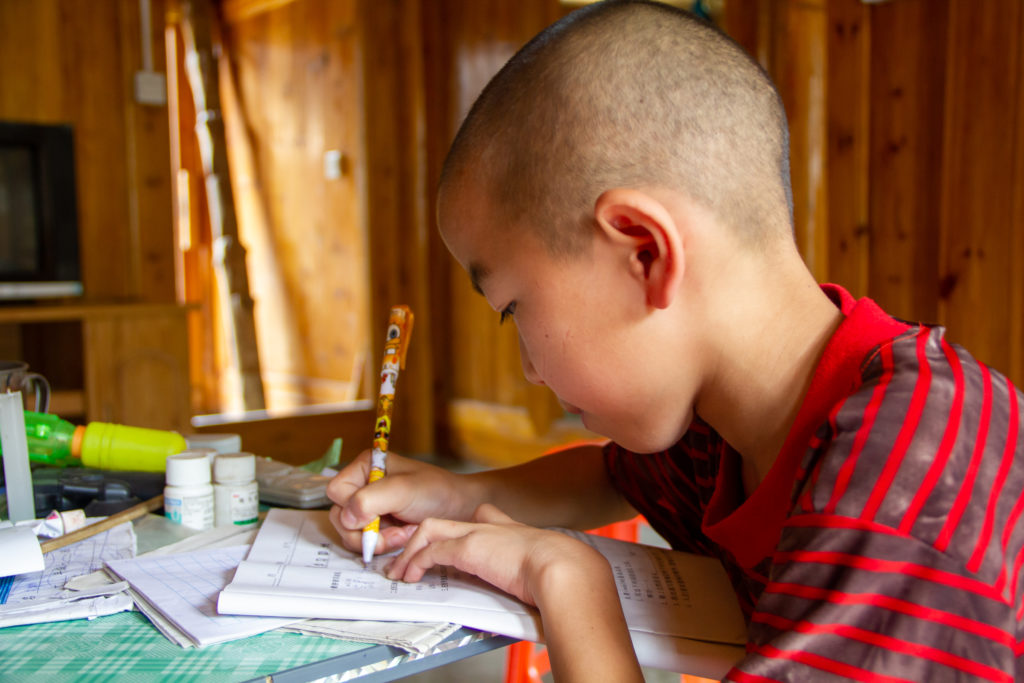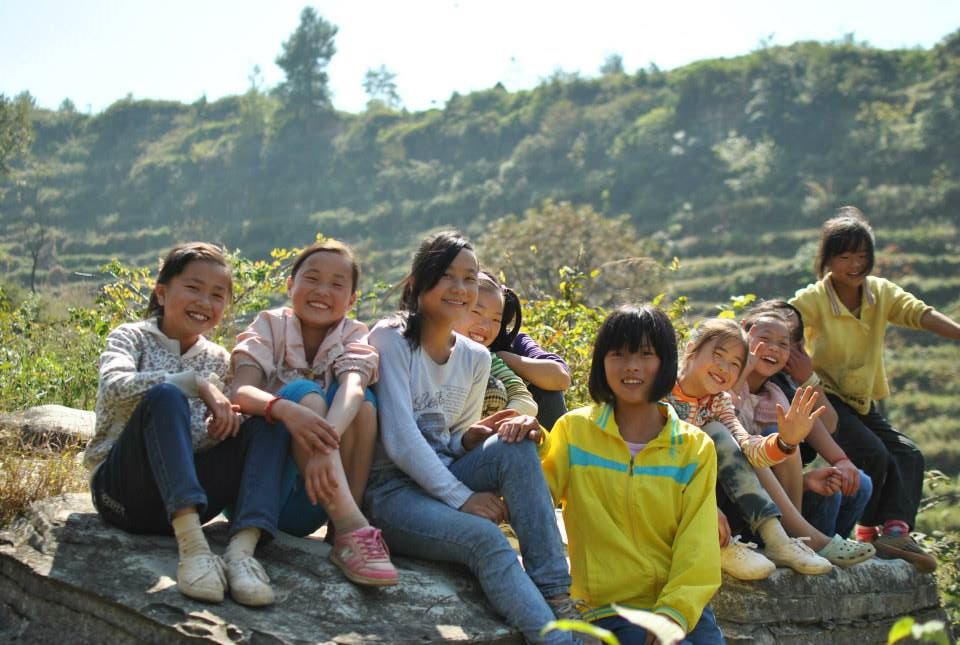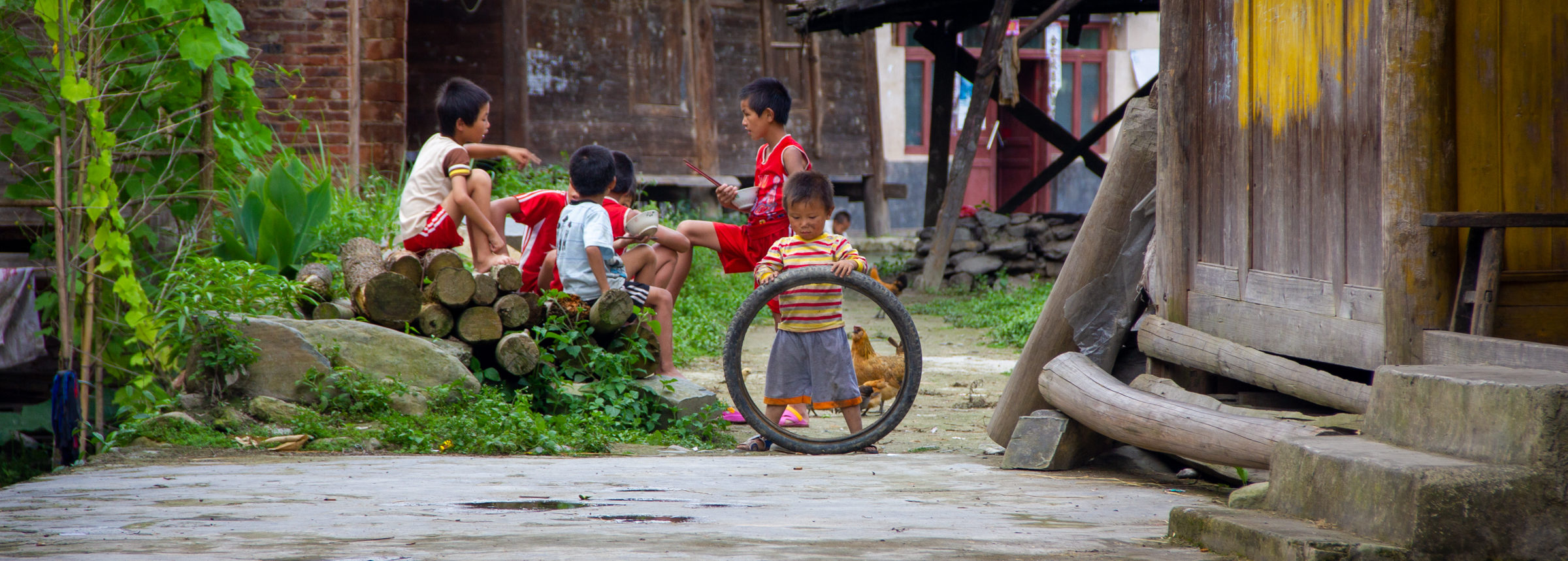Published: 03/16/2022
Xinshu She, MD, a Stanford Global Health Faculty Fellow, studies the under documented phenomenon of poor mental health among rural Chinese youth
By Jamie Hansen
Youth mental health is an area of increasing concern and scholarship around the world, and Global Health Faculty Fellow Dr. Xin She is shining a light on one particularly large and understudied group: adolescents in rural China.

Dr. Xin She is a Global Health pediatrician with 14 years of experience working in low-resource settings. She speaks 5 languages is passionate about creating innovative solutions across boundaries to help all children achieve their full potential.
In a study published last year, She and her co-authors found that nearly 17.9 percent of the 9,700 adolescents surveyed in rural Jiangxi Province scored in the abnormal range on the Strengths and Difficulties Questionnaire, a well-recognized screening tool for children. Children whose scores are classified as “abnormal” are at greater risk of having mental health problems and low resilience compared with their peers.
These findings support the qualitative data that She, a Stanford global health pediatrician, has been collecting since 2010, when she first interned as a health education teacher in rural China while pursuing her Master’s degree. “Kids would trail me after class, wanting to talk and tell me about their lives,” she recalled. “While I went there worried about nutrition and hygiene, I soon realized how incredibly lacking their social support was and that mental health might be an issue.”
“While I went to (rural China) worried about nutrition and hygiene, I soon realized how incredibly lacking their social support was — and that mental health might be an issue.”
Dr. Xin She, Stanford Global Health Faculty Fellow
When She left, she received nearly 100 letters from her students, “full of love and heartbreak.” Many of the students were part of a generation of “left-behind children” whose parents have moved away to cities to earn a living, leaving the children in the care of aging grandparents who often aren’t equipped to support the students emotionally or academically.
“Many felt utterly alone, with nobody to talk to,” she said. And yet, most of the research on youth mental health was centered in resource-rich urban areas, where it was perceived that stress levels would be higher.

“One in 7 kids live in China, and 70 percent of those children are born in rural areas – so this is a huge group of children that nobody was talking about,” she said.
She began conducting qualitative interviews with teachers and families and learned that they too were worried about childrens’ mental health, though stigma and taboo prevented most people from addressing their concerns publicly.
When She and her colleagues later conducted the Strengths and Difficulties Questionnaire survey in Jiangxi Province, they found that the percent of youth at risk for mental health problems was higher than in studies conducted in developed countries. If the study’s results were extrapolated to all 95 million school children in rural Chinese children, as many as 20 million could be at risk of having mental health problems, the authors found.
She believes the lack of connection to their parents or other strong social-emotional supports is a driving factor behind the high levels of emotional distress in rural Chinese youth.
“The biggest question,” she said, “is how to build resilience.” She is investigating how interventions found to be effective in high-income countries, such as additional social-emotional support at school, might be translated to low-income settings.
“It is a tremendous piece of blank paper,” she said of the current lack of evidence for effective interventions to build emotional resilience in rural Chinese youth. “Nothing has yet been proven to work in this context.”
“It is a tremendous piece of blank paper.”
Dr. She on the current lack of evidence for interventions to build emotional resilience in rural Chinese youth
She believes that having even limited access to parents each day could help significantly, but unfortunately this is not often possible. Parents often travel hundreds of miles to work in an effort to afford a better life for their children, at the cost of only being able to see them once a year.
She and Stanford’s Dr. Scott Rozelle, a pioneer in early childhood intervention in rural China, recently published a paper on the epidemiology of perinatal mental health in rural China (https://pubmed.ncbi.nlm.nih.gov/34950062/). Rozelle leads the Rural Education Action Program at Stanford, a group that has recently submitted several papers for publication on Chinese youth mental health. Preliminary results found significant differences in the mental health of rural children compared with urban and even migrant children who may have more consistent connection with their parents once reunited.

She and her colleagues are exploring ideas like giving extended family members and teachers the tools and training to support youth in their social-emotional development. This idea that youth could benefit from community support resonates with She. She first became interested in the mental health of rural youth after hearing stories from her parents, who spent their adolescence working in rural China.
“I grew up with stories about my parents being forced to go to work at 16, the lack of running water, contaminated water — lots of public health issues that I know now are really deeply rooted in social justice,” She said. “Yet despite these hardships, my parents talked about how generous people were, how kindly they were treated.”
In one bright spot, She and her colleagues recently reviewed studies that showed promise in socioemotional learning and extracurricular reading to improve youth mental health. In turn, better mental health is associated with higher cognitive performance. Interventional studies are underway to target these outcomes in a culturally sensitive way.
“Teenagers have limited life experience and control over what they can do,”she said. “Having access to other life experiences without having to go anywhere can help youth feel like they’re not alone with their issues and feelings.”
